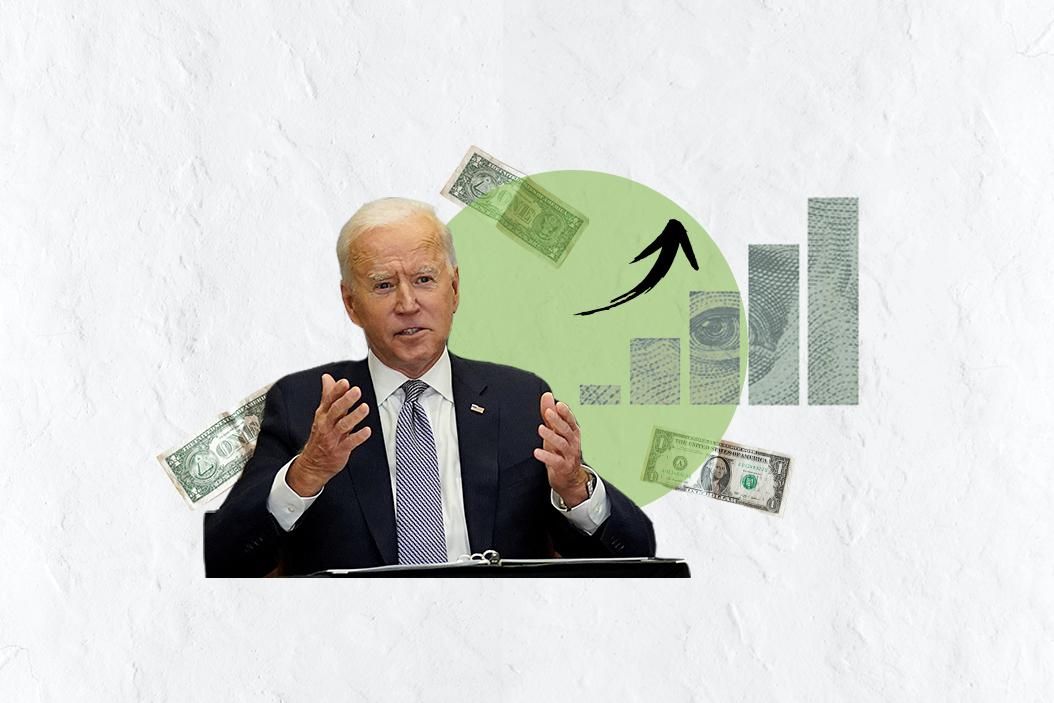Will Biden's spending bring inflation back from the dead?
The US federal government is gearing up to spend a lot of money these days. So far, to cushion the blow of the pandemic, Washington has already parted with $5 trillion in the form of direct payments to households, forgivable loans to businesses, and other support including aid to state governments. And more is coming.
President Joe Biden has proposed another $4 trillion in federal funds for physical and "human" infrastructure, some of which would create income support and social spending programs that would last well beyond the pandemic.
While these measures are hugely popular with the public, the government has had to borrow heavily to pay for them. The national debt rose to 100 percent of GDP in 2020, its highest level since 1946, when war and recession drove the debt level to 106 percent of GDP.
Much of the recent borrowing has been from the Federal Reserve, which essentially prints money to purchase government debt.
And that has raised fears of an old enemy: inflation.
The logic of these concerns is straightforward and well accepted by economists: more dollars chasing the same amount of goods bids up prices. That was not much of a problem during the pandemic, when storefronts were closed and most people were stuck at home and unable to spend much money.
But as the pandemic ebbs, jobs are returning, consumers are starting to make delayed purchases, and signs of inflation are starting to appear.
Prices for new cars are up 8.4 percent, while real estate values, energy prices, and stock markets are all surging. Prominent economists such as former Clinton administration Treasury Secretary Larry Summers have warned that the administration's spending may add too much fuel to an economic fire that is starting to burn again as the pandemic recedes.
An inflation surge would be bad news for most people. Rising prices for basic goods would increase hardships in particular for low-income households, which tend to spend more of their income on these kinds of items and who have borne the brunt of the pandemic's economic impact. Higher prices would also put homeownership out of reach for millions of Americans. And they would likely force the Fed to deploy its main inflation-fighting tool — an increase in interest rates — which itself could trigger a recession by raising the cost of borrowing and causing a slowdown in spending.
Inflation hawks often point to the cautionary tale of the "Great Inflation" of the late 1960s and 1970s, which followed a period of Fed-financed borrowing by the federal government. Inflation accelerated from 1 percent in 1964 to 14 percent in 1980, resulting in energy shortages and price and wage controls. It also prompted a series of Fed rate hikes that caused two recessions. Inflation did not start to recede until interest rates reached 20 percent, a level unimaginable today.
But supporters of increased spending to pull the economy out of its pandemic-induced slump say the supply of goods will increase as conditions start to return to normal, alleviating any short-term bottlenecks that are currently causing price spikes. Federal Reserve Chairman Jay Powell and Treasury Secretary Janet Yellen have both said they expect today's emerging inflationary pressures to be transitory and that the Fed can quickly tamp them down if that proves not to be the case. And unlike in the 1970s, there is little evidence of widespread increases in post-pandemic wages, which could increase inflationary pressures by putting more money in consumers' pockets.
Furthermore, the remainder of the Biden economic plan is designed to be largely paid for by tax increases that will take effect over the next fifteen years, rather than by more borrowing. Once the tax increases are fully phased in, the federal government will actually be pulling more money out of the economy than it is pumping in.
So who is right? Only time will tell. For years now, US policymakers have treated inflation as an enemy long since vanquished. These unprecedented levels of spending may put those assumptions to the test. If the administration's supporters are right, the spending will be a historic reshaping and rebuilding of the American economy. If they are wrong, Americans could face a new type of economic disruption just as they put the pandemic behind them.
- Closing tax loopholes: How US Congress will fund spending bill - GZERO Media ›
- Larry Summers' view: What caused US inflation and how to slow it down - GZERO Media ›
- Biden sticks with Powell as Fed Chair amid rising inflation - GZERO Media ›
- Virginia’s governor race tests Democrats ahead of 2022 midterms - GZERO Media ›
- Inflation panicking is 1970s hangover, says economic historian Adam Tooze - GZERO Media ›
